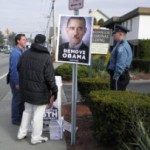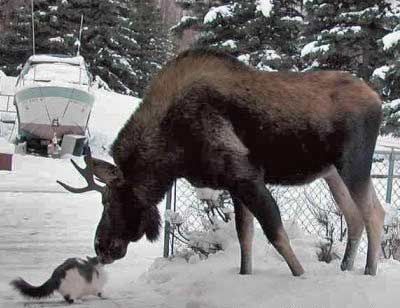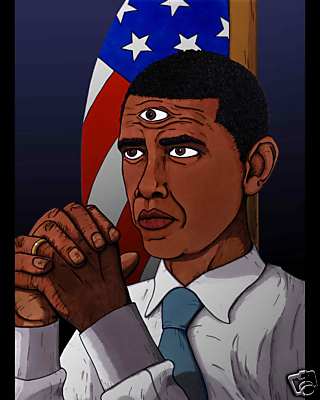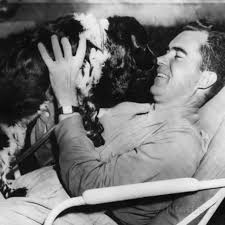Rick Potvin lays down the Larouche line on the Demonstrations in Russia.
My comment: Clearly , this is more British subversion intended to destabilize Russia. This is the value of reading Larouche. All other mainstream media are complicit in the destabilization by failing to report the essential features of what’s going on as Larouche does.
There’s a few things that are curious with this. Recent larouchie deployments have shown a renewed focus on Hillary Clinton for President, with a suggestion of support for one of those wary Hillary Clinton primary campaigns against the Hitlerite tool of British interests, Barack Obama.
And Hillary Clinton has chimed in with a one of these things.
Sec. Clinton listed out a specific claim that election observers were thwarted in attempts to monitor the Russian elections. She argued that ‘independent Russian election observers, including the nationwide Golos network, were harassed and had cyber attacks on their websites, which is completely contrary to what should be the protected rights of people to observe elections, participate in them, and disseminate information.’ This is another allegation tossed at Putin’s ruling party.
Clinton concluded that the ‘Russian people, like people everywhere, deserve the right to have their voices heard and their votes counted. And that means they deserve fair, free, transparent elections and leaders who are accountable to them.’ This provoked a strong response from Putin and his allies.
Putin fired back that Clinton ‘set the tone for some of our public figures inside the country, sent a signal to them. They heard this signal and launched active work with the U.S. State Department’s support.’ Putin accused the United States of organizing and setting the stage for the large protests.
If there were any intellectual honesty in the cult, this would set up the biggest crisis in the Lyndon Larouche Movement since Summer Shields was unable to obtain ballot access in California, or since the failed prediction about 20 dollar bread loafs. It appears that their love for Vladimir Putin outstrips their love for the Clintons — must be taken in by those shirtless photo ops he made —
and the Putin loving is curious in a way, since one of the larouchie deployments had a call out to an Obama supporter that she was just for Obama because she wants to have sex with him. See too the Get Out the Vote ads that Vladimir Putin’s party ran on Russian tv.
We’ll just have to see how this story develops, and how they’ll rationalize the inconsistencies of Hillary Clinton’s hawkisheness and concern for developments in Russia — “Was It Hillary’s Error?” lest it embarrass Jeffrey Steinberg’s “Desperately Seeking Hillary“, and make themselves available to Russia Today, and to PUMA outlets.
Odd thing about Russia Today — Larouche was cut off on his second appearance, when even they couldn’t stand for his insanity. He did get a third appearance on, but I suppose it’s better now to swirl down the list of EIR.
Jeff Steinberg of E.I.R. discusses the central role that LaRouche has played to catalyze a global resistance to the British plans for thermonuclear World War III.
Yeah. And the org has declared War On Christmas — and all the other Holidays.
Christmas is Cancelled: Stop the Threat of Thermonuclear War
by Rachel Brown (Congressional Candidate in Massachusetts.)
To continue with one’s holiday fantasies, and say “It’s not the time to be political,” is no different than those political leaders and citizens who maintain that Hitler could be voted out in the next election, or who today say, “It’s not the time to remove Obama.” The fantasy that Obama can remain in office, and that WWIII will wait, is just that, and cannot be tolerated. All signs point to the immediate danger of thermonuclear war and dictatorship, including Obama’s recent attack on Hillary Clinton to sabotage her work on the U.S.-Russia relationship and provoke a hostile reaction from Russia, and his demand that American citizens be able to be arrested and held without legal counsel. Recent “explosions” in Iran, troop buildup in the region, and reports of U.S. covert activities in Iran, demonstrate the ongoing determination to “create” an incident which would launch WWIII. The time by which the British must do it, driven by the collapse of the European system, is now.
And now some commentary from a Larouche linker on this coming WW3:
In the 30’s England and Jewry (If there is a difference) sought to destroy Nationalism in Europe, squaring up to their opponent, then starting a(nother) World War after getting slapped the fuck down. Now the Anglo-Jewry changed Germany with Iran. The England of the Middle East, Israel, squaring up to the Germany of the same, Iran. Their hubris will lead an attack that’ll backfire. Of course the useful idiots are no longer Communists waves played off by these twin-vampires, rather American beefcakes who aren’t engineered to enter the breach in the same way. There is no tsunami of endless Russian rapists this time around, rather a multicult Burger-King army whose lack of eagerness can only mean pressing the cheat button.
Some comedy gold from Howie G. Igor Panarin, ladies and gentlemen. Maybe this guy can be put in charge of the Russian Larouche Movement?
This guy needs to get on the right page. Hillary Clinton is not the enemy here.
II.
December 11 National Webcast, as posted to “Peninsula Virginia Tea Party” thingy.
The subject of the Symposium was “Mankind in the Galaxy: Will You Permit the Extinction of the Human Species?”, of which Lyndon LaRouche’s presentation was the final part.
Yeah. Well. Apathy reigns in the fight against Human Extinction. We see this by public reaction to the Fight to save humanity from the org.
Kick Obama out of office on grounds of insanity as La Rouche suggests in his video on youtube.com or look up his website!
Will do, Pat.
“6 billion must dieâ€
Lyndon Hermyle LaRouche, aka Lyndon LaRouche … discussing the mindset of the Queen of England and rulers of Europe on the Alex Jones radio show
a mind that can destroy its own ….
HUNT DOWN THE ROTHSCHILDS (Every Fu&%ing One Of Them) AND AFFORD THEM THE LUXURY OF REMOVING THEIR HEADS FROM THEIR BODIES!!!!!!!!!!!!!!!!!!!!!!!!!!!!!!!!!!!!!!!!!!!!!!!!!!!!!!
Hm.
After years of listening to these men [larouche and tarpley] lead us around by the nose, I finally gave up on them. I am unlearned and therefore just a bit more FREE, alive and awake.
Interesting stuff. Worth a gander in a moment.
On a slightly different note, recently a few people unsubscribed from the mailing list because of “too much info.â€
Well, it’s interesting that – because these days it’s the 3D world that brings me to overwhelm!
Sure all the ‘truth info’ is pretty mind-bogglingly hard-to-believe sometimes, but as the Lyndon LaRouche video I posted recently says, you need to know the truth otherwise how can you make an informed choice. (Btw, Lyndon LaRouche also goes on to say a lot of other things that, for sure, may seem ‘too much.’)
Sure they didn’t unsubscribe due to posting larouche crap?
Candidate Diane Sare, representative of the LaRouche Democratic national slate in NJ, hosted a LaRouche PAC Symposium on December 11, 2011. She gave an address titled “Should We Hold Elections Before or After World War III?
Personally, I think we should do it after World War III. We survived holding elections after the Civil War started, and after the two world wars started, what’s different with World War III?
III. In 1971 the editors of the Mormon journal Dialogue invited Georgetown historian Carroll Quigley to write a critical review of Skousen, who had extolled his work. Quigley condemned his whacked-out admirer in the harshest possible terms: “Skousen’s personal position seems to me perilously close to the ‘exclusive uniformity’ which I see in Nazism and in the Radical Right in this country. In fact, his position has echoes of the original Nazi 25-point plan.â€
I found that in this book – Blowing Smoke: Why the Right Keeps Serving Up Whack Job Fantasies about [clever subtitle by way of length]  By Michael Wolraich. The chapter of interest to anyone with interest in the Larouche Movement is Chapter 8 — Return of the International Jew. The focus circles around one of the more common items one sees cited from Executive Intelligence Review, here for instance:
“The Secret Financial Network Behind ‘Wizard’ George Sorosâ€. William Engdahl. Executive Intelligence Review. 11-1-96.
I was a little curious about the background for the “Dialouge” piece. Naturally, it is online. Right here. I’m slightly disappointed with this set-up, but I suppose if Quigley wished to respond to Clousen’s response he had ample places to do so.
Hm.
Though Egypt is not remotely the economic basket case depicted by the “exâ€-LaRouchie and derivatives-trader David Goldman (who seems to think Daniel Pipes-linked publications are legitimate primary-source material), it will be about as “threatening†as a beached whale for at least three generations.
IV. PO TOUR
Dateline Davis:

The man working the booth explained to a passerby that the Euro was deliberately designed to fail by the British in an attempt to squash sovereign nations in Europe. You can read much more about their stances on their website. It’s more complex and broad than this brief characterization. Regardless, why the large Obama-Hitler signs?
The man working the booth made several Obama-Hitler comparisons, mostly in the form of America’s involvement in Libya and other countries. But he didn’t answer the question as it relates to the signs themselves, which are obviously an attempt to get people’s attention.
Dateline East Greenwich
 Officers said they had been sent to the site by dispatch and did not know who made the call. They said it did not come from Dunkin’ Donuts, but employees they spoke to said the owner was probably not going to be happy about the display.
Officers said they had been sent to the site by dispatch and did not know who made the call. They said it did not come from Dunkin’ Donuts, but employees they spoke to said the owner was probably not going to be happy about the display.
The two men gave their names to the officer when he asked, but would not give them to Patch and would not be interviewed. Any more information, they said, would have to come from LaRouche Pac.
The two did say they had not asked permission from the Dunkin’ Donuts owner to be in front of store, and the police told them the display did not violate any ordinance. They did make them move one sign which was impeding traffic. The men were accepting donations and the officer said he would have to check as to whether that was a violation. The two said they were not selling anything.
Dateline California:
(I did tell the LaRouchies, who were collecting signatures, to impeach Obama, that they were nuts.)
V. Media citations.
Good lord. This guy just lost credibility in tackling Andrew Cuomo right here:
But “public-private partnerships†are yet another disturbing step away from accountability. PPPs were favored in Italy in the 1920s, according to an article in the Executive Intelligence Review. The facsists called it “corporatism.â€
Douglas Turner, writing for the Buffalo News, randomly tosses out an unnamed article from the larouche publication — the same one that disclosed a vast conspiracy made up of a variety of websites including this one that are at war with America.
The great thing about this particular criticism is it leaves EVERY possible government policy “fascist”, because they’re dealing with “business”.
Meanwhile, this guy — standing before an unflattering picture of Dick Cheney — wants you to know that he predicted everything coming. And that the powers that be hate him and want to stop him.
 Image was found here.
Image was found here.
Maybe he should sign up with the one percent by grimacing in the manner of Cheney?
Hey! Prison Planet now publishing the works of Nancy Spannaus. Neat!
La Rouche is insane
May the evil queen of England get a bad case of severe Diarrhea, dehydrate and die a slow aggonizingly painful death and her ugly evil corpse be buried in a sewer filled to the very top with smelly disease ridden shit.
For this is what the rest of the evil New World Order loving child molesting, mass murdering bastards deserve also.
Let freedom ring througout the nations of the Earth for the wicked witch of Britian is soon to be dead.
Obama needs to pull out of all foreign councils and treaties and protect American citizens on American soil. He needs to tell the Queen to take a hike and do her own dirty work!
That’s Dr. Paul’s dialogue.
It’s not the House of Windsor we must fear. It’s the Zionist House of Rothschild. Rothschild controls the money supply of the whole world. Rothschild’s minions created the central banks that have turned us into debt slaves. The queen and our so-called presidents and prime ministers are merely puppets following orders. LaRouche is way off base on this.
the queen of england is rothschild’s groom of the stool.






